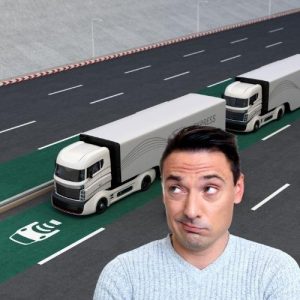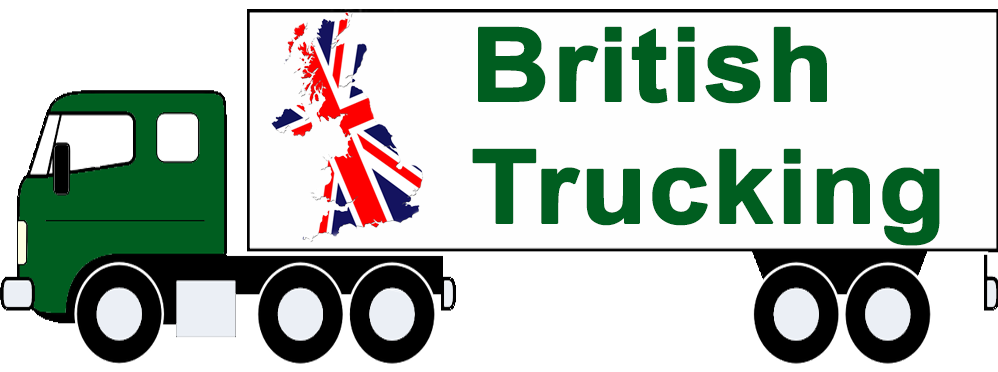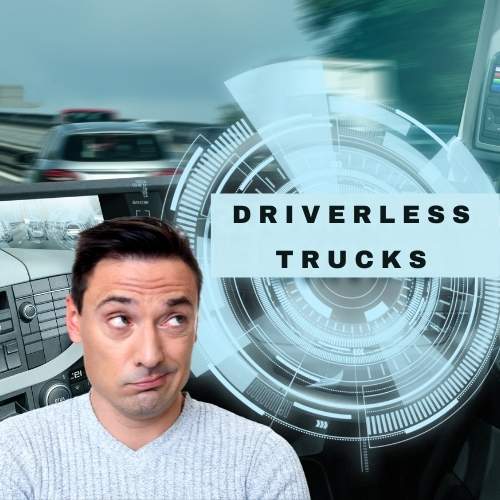The haulage industry is always looking for ways to make their jobs easier. Driverless trucks may be the answer. The Department of Transport issued a statement in April 2021 that the public could see driverless vehicles on the motorways towards the end of the year, sparking a debate about what it means for truck drivers and the safety of road travel. This blog post discusses how driverless trucks will impact truck drivers, why they would be beneficial, whether they still require qualified drivers onboard for deliveries using small roads, if they are safe on Britain’s roads, and why more people are worried about starting careers as truck drivers because of them.
What are Driverless Trucks and How Do They Work?
Driverless trucks are trucks that are operated without a driver in the driver’s seat. These trucks are controlled by a computer system, which allows them to be driven autonomously. There are a number of reasons why driverless trucks are being tested more often.

Firstly, driverless trucks could be more efficient than traditional trucks. They can travel at a constant speed and don’t require any breaks. This means that they can make deliveries quicker and more efficiently than traditional trucks.
Another reason why these types of trucks are becoming more popular is that they are believed to be safer than traditional trucks. Driverless trucks can brake and steer automatically, which means that they are less likely to get into accidents. This makes them a safer option for the haulage industry once the technology is in place.
Driverless trucks are operated without a driver in the driver’s seat. These trucks are controlled by an onboard computer system, which allows them to be driven autonomously. They work by using a series of cameras and sensors to detect the surrounding area almost in the same way as a radar system, with this data being transmitted back to a central control unit the truck will determine its road positioning, speed, and braking.
The government has been overseeing the development of driverless vehicles for years in order to cut costs and reduce accidents levels. However, the costs have reportedly been very high, meaning that they have not yet rolled out any driverless trucks into the UK haulage industry.
Driverless trucks have been in development by various companies for a number of years, one of which is Volvo who has made significant advances with their autonomous truck Vera. However, they have already been rolled out abroad in some countries, such as the United States and Japan.
To use driverless trucks to carry haulage there are significant road structure changes that will need to be implemented. These include using smart motorways to communicate with driverless trucks with the intention to provide a dedicated lane for them to travel on.
over recent years smart motorways have been slammed as being dangerous with the removal of hard shoulders, so infrastructure will be problematic if we are to see driverless trucks in the UK haulage industry.
A Driverless truck has the potential to be very beneficial for the haulage industry. They could improve safety, efficiency, and productivity.
Self driving trucks could make some jobs easier, like long-distance driving. Basically, truck drivers won’t have to “drive” the truck for long periods of time. They’ll just sit in the cabin and monitor it on a tablet or smart-screen. Lower skilled drivers can also do long-haul routes more easily than they might now.
Truck Drivers Worry About Job Security As Driverless Trucks Are Tested On UK Roads
The worry is that driverless technology will eventually put a lot of truck drivers out of work. Truck driving has always been one of the most common jobs in the UK, and it’s not hard to see how driverless trucks might make some truck drivers worry about their jobs.
Some experts predict that up to 80% of all long-haul trucking could be done by driverless trucks in the next two decades.
Trucking companies are already testing out how to make their vehicles self-driving, and many of these tests have been going on for a while now. The Government started testing autonomous trucks back in 2018 with a small number of convoy tests.
The department of transport is stating that the first driverless vehicles will be seen in public at the end of 2021 with a top speed limit set at 37.5 mph (D.O.T Reference).
The safety of the roads in the UK is definitely a major concern for the government. Driverless trucks would still require a qualified truck driver onboard for deliveries using small roads. There are safety concerns within the haulage industry that drivers may be less attentive with these types of trucks, which could cause an accident.
Are Driverless Trucks Impacting New Truck Drivers Choosing Trucking as a Career?
Truck drivers, should not be worried about driverless trucks taking their jobs or disrupting their careers. Truck drivers are still needed for long-haul routes and will be in demand for many years to come. Driverless trucks could actually mean more job security for truck drivers as they may eventually take over some of the short-haul deliveries that don’t require a driver’s expertise or experience. Additionally, there is no doubt that driverless trucks will require qualified truck drivers for many years to come.
Driverless trucks are still being tested throughout the UK and there are issues that need to be worked out before it is implemented at scale safely on public roads, mainly surrounding safety concerns. For example, if a driverless truck were to break down or have some other mechanical issue what would happen? Would another driver be required to take over or would the truck be able to safely navigate to the nearest service station?
These are some of the issues that need to be addressed before this type of truck can become a commonplace sight on British roads. Whilst there is no doubt that they will eventually play a role in haulage, it is likely that this will not happen for some years yet.
Other factors to consider, a truck with no driver would not be able to change trailers easily, certainly not in the near future where suzies and airlines need to be connected. Driverless trucks would cause traffic jams because they would have so many safety features it is unlikely they would reach speeds of over 40mph. I do not think that these vehicles will be able to navigate very tight warehouses, farms, or back of shop deliveries on a high street.
Although testing is still ongoing, it will be a long time into the future before a self-driving truck will in fact not require a truck driver on board to assist with all the difficult areas of driving in the UK.
Conclusion
Driverless trucks could actually mean more job security for truck drivers as they may eventually take over some of the short-haul deliveries that don’t require a driver’s expertise or experience. Additionally, there is no doubt that driverless trucks will require qualified truck drivers for many years to come. Driverless trucks are still being tested throughout the UK and there are issues that need to be worked out before it is implemented at scale safely on public roads, mainly surrounding safety concerns. For example, if a driverless truck were to break down or have some other mechanical issue what would happen? Would another driver be required to take over or would the truck be able to safely navigate to the nearest service station? These are some of the issues that need to be addressed before driverless trucks can become a commonplace sight on British roads. Whilst there is no doubt that they will eventually play a role in haulage, it is likely that this will not happen for some years yet.




